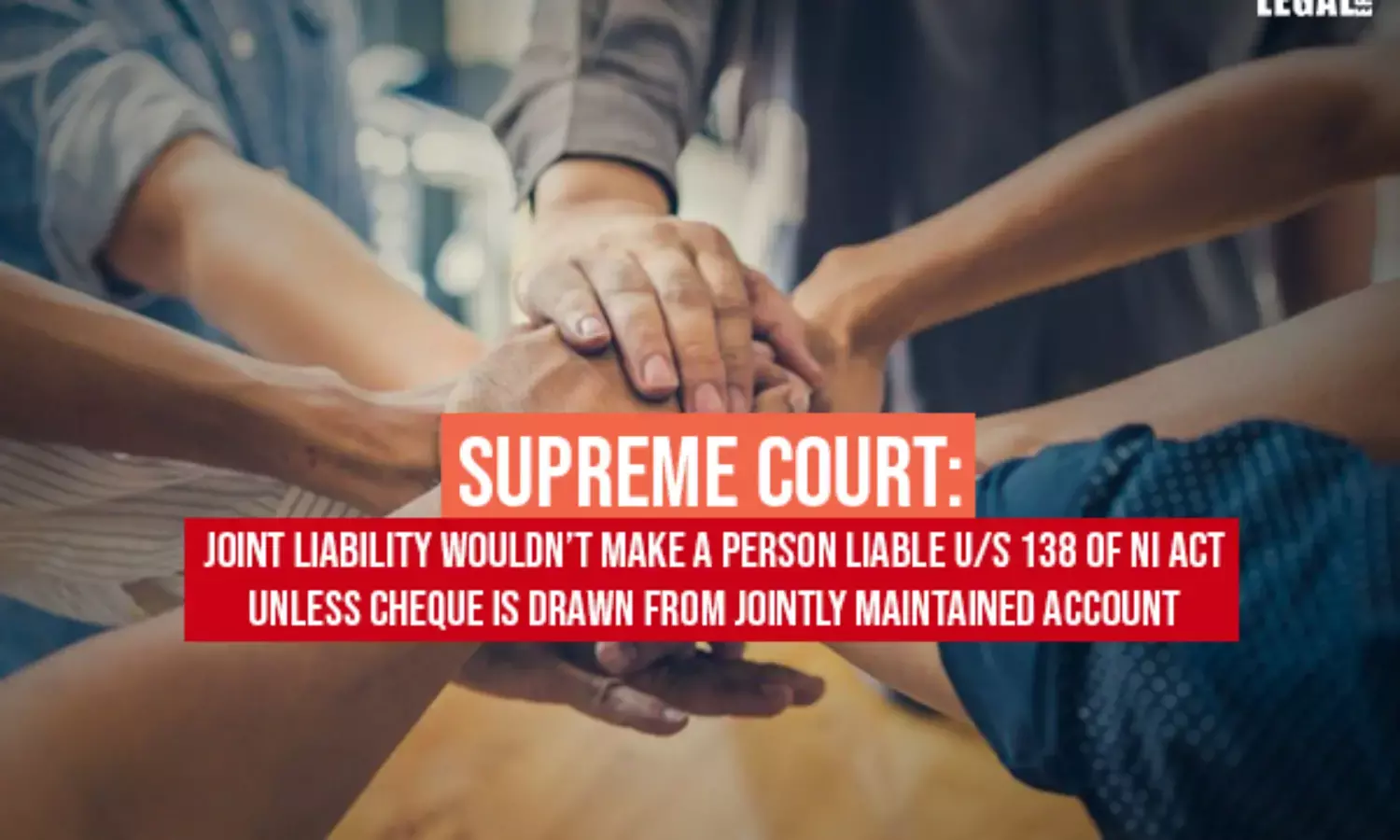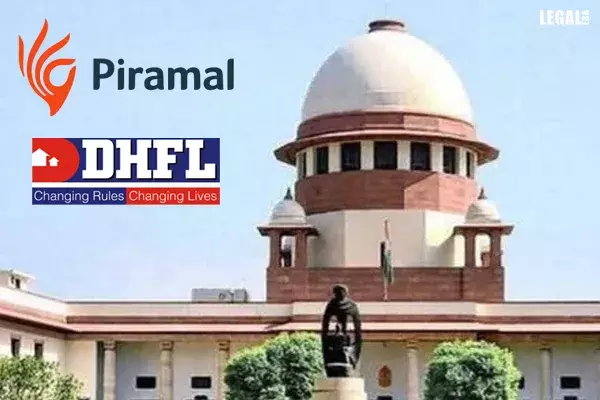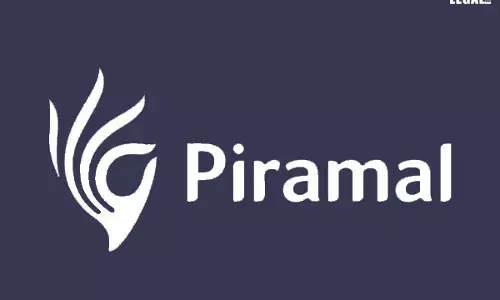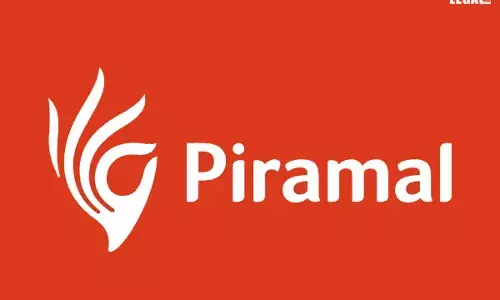Supreme Court: Joint Liability wouldn't make a person Liable u/s 138 of NI Act Unless Cheque is Drawn from Jointly Maintained Account
The Supreme Court of India (SC) noted in Alka Khandu Avhad (Appellant) v. Amar Syamprasad Mishra (Respondent) that "A person;

Supreme Court: Joint Liability wouldn't make a person Liable u/s 138 of NI Act Unless Cheque is Drawn from Jointly Maintained Account The Supreme Court of India (SC) noted in Alka Khandu Avhad (Appellant) v. Amar Syamprasad Mishra (Respondent) that "A person might have been jointly liable to pay the debt, but if such a person who might have been liable to pay the debt jointly, cannot...
Supreme Court: Joint Liability wouldn't make a person Liable u/s 138 of NI Act Unless Cheque is Drawn from Jointly Maintained Account
The Supreme Court of India (SC) noted in Alka Khandu Avhad (Appellant) v. Amar Syamprasad Mishra (Respondent) that "A person might have been jointly liable to pay the debt, but if such a person who might have been liable to pay the debt jointly, cannot be prosecuted unless the bank account is jointly maintained."
The SC bench comprising of Justices DY Chandrachud and MR Shah, ruled that even if a person owes payment to another jointly with someone else, he/she cannot be held liable under Section 138 of the Negotiable Instruments Act (NI Act) unless the account on which the cheque was drawn is jointly maintained and that person was a signatory to the cheque.
The factual matrix of the case is that the original complainant was a lawyer who raised a professional bill for the legal work done by him to represent a couple in the legal proceedings.
The husband issued the cheque that got dishonoured. The lawyer filed a complaint against the husband and his wife (accused) for the offence punishable under Section 138 of the NI Act. The lawyer stated that both the accused persons have the joint liability to pay the professional bill.
The accused wife approached the High Court (HC) wherein she sought quashing of the criminal complaint filed against her based on the ground that she was neither a signatory to the cheque dishonoured nor there was a joint bank account. The HC dismissed the petition filed by her.
She filed an appeal before the Top Court and the bench referred to Section 138 of the NI Act, and observed that before prosecuting a person under the said provision the following conditions must be fulfilled-
- That the cheque is drawn by a person and on an account maintained by him with a banker;
- For the payment of any amount of money to another person from out of that account for the discharge, in whole or in part, of any debt or other liability;
- The said cheque is returned by the bank unpaid, either because of the amount of money standing to the credit of that account is insufficient to honour the cheque or that it exceeds the amount arranged to be paid from that account.
The Apex Court disagreed with the contention of the complainant (the couple's lawyer) and rejected the contention that the complaint is maintainable against wife-accused as well for dishonor of the cheque issued towards discharge of legal liability of both the accused persons.
The SC observed that "Therefore, a person who is the signatory to the cheque and the cheque is drawn by that person on an account maintained by him and the cheque has been issued for the discharge, in whole or in part, of any debt or other liability and the said cheque has been returned by the bank unpaid, such person can be said to have committed an offence."
The Court clarified, "Section 138 of the NI Act does not speak about the joint liability. Even in case of a joint liability, in case of individual persons, a person other than a person who has drawn the cheque on an account maintained by him, cannot be prosecuted for the offence under Section 138 of the NI Act."
The Top Court further stated that Section 141 of the NI Act cannot be made applicable to the individuals. It also rejected the contention of the complainant that the accused can be convicted u/s 141 of the NI Act.
It stated that "Section 141 of the NI Act is relating to the offence by companies and it cannot be made applicable to the individuals. Learned counsel appearing on behalf of the original complainant has submitted that "Company" means anybody corporate and includes, a firm or other association of individuals and therefore in case of a joint liability of two or more persons it will fall within "other association of individuals" and therefore with the aid of Section 141 of the NI Act, the appellant who is jointly liable to pay the debt, can be prosecuted."
The Court added, "Two private individuals cannot be said to be "other association of individuals. Therefore, there is no question of invoking Section141 of the NI Act against the appellant, as the liability is the individual liability (may be a joint liabilities), but cannot be said to be the offence committed by a company or by corporate or firm or other associations of individuals."
The Top Court set aside the order passed by the HC. It allowed the appeal filed by the accused wife and quashed the complaint against her.





